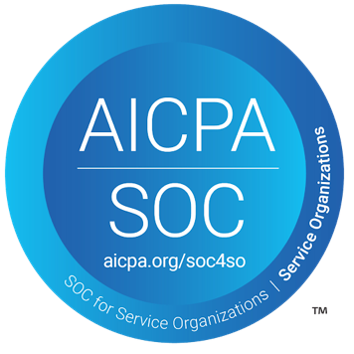How a Practice Loan Can Benefit Your Healthcare Business

Financing is important for all small businesses, but it’s particularly crucial for medical, dental, optometry, and veterinary practices. From startup costs and partner buy-ins to equipment upgrades and business expansions, the funding needs of healthcare practices are unique and require significant upfront investment. Practice loans empower medical professionals to grow their practices and stay on the cutting edge of care.
To help you decide if a practice loan is the right kind of financing for your healthcare business, we’ve put together this guide to answer common questions. You’ll learn:
What practice loans are
What they can be used for
Their benefits
The documents you’ll need for the application process
What other funding options are available
What Are Practice Loans?
Practice loans are business term loans that provide funding to healthcare practice owners. They work similarly to traditional bank loans but are tailored to the needs of medical professionals.
Banks with practice loan financing options generally lend to:
Dentists
Optometrists
Veterinarians
Medical practitioners, such as family doctors, gastroenterologists, neurologists, etc.
Some lenders will also offer professional practice loans to non-medical practices, such as law or accounting firms.
Most banks’ practice loan options offer fixed rates, loan amounts of up to $5,000,000, and loan terms of up to 15 years (or up to 25 years for real estate loans). Some also extend up to 100% financing for qualified borrowers, which means you won’t need to come up with cash for a down payment.
What Can Practice Loans Be Used For?
Practice loans can be used for a variety of business needs, including:
Starting a new practice
Expanding an existing practice (such as opening a new location)
Funding a practice acquisition
Purchasing new equipment
Buying commercial real estate (either through a conventional owner-occupied loan or an SBA loan)
Refinancing or debt consolidation
While all businesses experience cash flow gaps from time to time, a new practice will have to cover operational expenses while building up its patient volume. That can mean more money going out than coming in during the early days of the business.
For this reason, in the case of startup or practice acquisition loans, some lenders include funds for working capital within the loan amount or offer supplemental financing in the form of business lines of credit or business credit cards.
What Are the Benefits of Practice Loans?
The primary benefit of a practice loan is that it’s designed for the specific financial needs of a medical practice. Banks often have dedicated healthcare lending teams or practice specialists for their medical practice loan customers.
However, some banks will offer additional perks. For example:
They may provide a supplemental coaching program for new practice owners to teach them about financial health, budgeting, and other business topics.
Some banks offer project consultants who will help manage the loan funds on your behalf and make payments to suppliers.
There may be rewards programs for customers who use multiple commercial banking services. For instance, if you have a business checking account with the bank, they may offer you a discounted interest rate on your practice loan.
Some professional associations will endorse the practice loan programs at certain banks, and then those banks will give group members a discount on loan fees. For example, if you're a member of the ADA, and they endorse a lender’s dental practice loan service, you could receive a special discount.
What Will a Lender Ask for During the Application Process?
While each lender will have their own process and requirements, here are some of the items you may need to provide along with your loan application:
Business and personal tax returns
Business plan
Financial statements
A cosigner
The lender will use the information you provide to ensure you meet their eligibility requirements. They may consider factors such as your creditworthiness, business stability, years in operation, current debt load, and how you plan to use the funds.
There may be different prerequisites depending on the type of practice loan you need. For example, a loan to refinance existing debt and an equipment loan may not have the same approval criteria.
Are There Other Practice Financing Options?
The long-term financing provided by practice loans is a good fit when it comes to large real estate purchases or practice acquisitions. However, sometimes a medical professional needs more flexible, short-term funding to cover operating expenses.
Both new and established practices deal with long revenue cycles due to insurance claims processing and patient billing. Insurance companies can take up to 45 days to send payment, and if they haven’t covered the claim in full, you then have to send a bill to your patient to cover the balance. This can lead to cash flow gaps as you wait for the revenue to come in.
That’s when a business line of credit or a working capital advance would be a better fit than a practice loan:
Business line of credit: This is a type of revolving credit (similar to a credit card) that you can have on hand as a cash reserve. You withdraw funds when you need them, only pay interest on the money you use, and the funds become available again after you repay what’s been borrowed. It’s perfect for covering payroll or equipment purchases as needed.
Working capital advance: This financial solution is a good fit if you need some extra working capital to tide you over. You receive the funds upfront (similar to a loan), but term lengths are often shorter, and you won’t need collateral. You also might have the option to make daily, weekly, or semi-monthly repayments, rather than the standard monthly payments that come with term loans.
The application process is usually much quicker for these financing options than for a term loan, especially if you use an online lender, like Backd.
Plus, even if you already have a practice loan through your bank, you can use these flexible alternatives to supplement your financing.
Spend Time on Your Patients, Not Worrying About Finances
You spent years studying to be a doctor so you could serve people (or pets) and care for their needs. However, when it comes to running your own practice, your patients aren’t your only responsibility. With the right financing, you can keep the financial side of your business running smoothly and spend time doing the things that truly matter.
Practice loans are a good option when it comes to startup, acquisition, or real estate costs. They can provide the long-term funds needed to cover those large expenses. For your working capital and operational funding needs, flexible financing options help you have cash on hand whenever you need it.
With Backd, you can quickly and easily apply for a business line of credit or a working capital advance. It only takes about three minutes to submit an application, and the eligibility requirements are straightforward:
$100,000 in monthly revenue
A credit score of 650 or higher
Established business credit
A business that’s based in the U.S. with a brick-and-mortar address
Been in business for one year for a working capital advance, or two years for a business line of credit
Apply now and receive a funding offer within as little as 6 hours.

